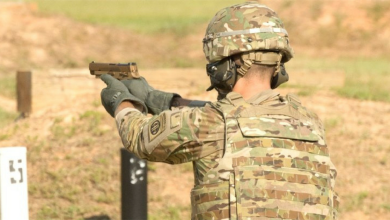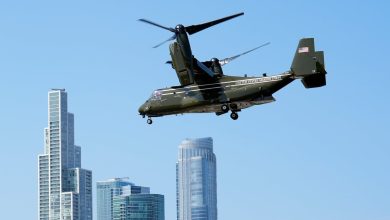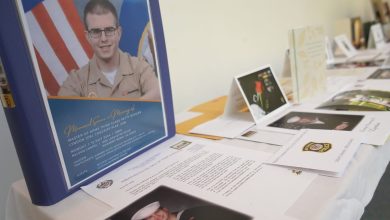Sharpen Your Mindset
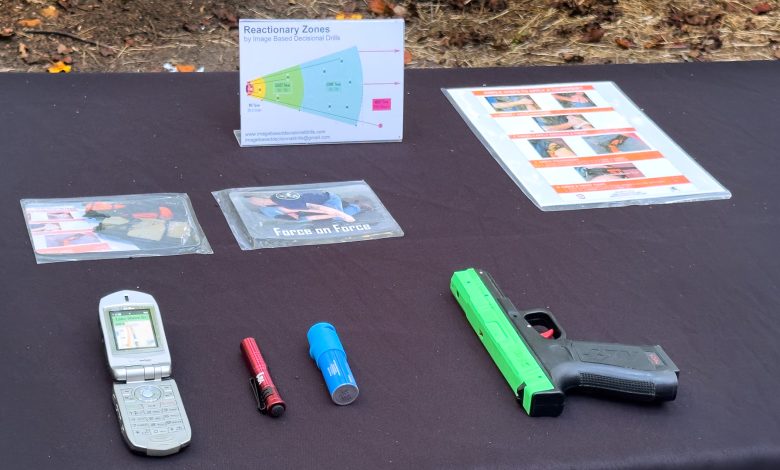
One of the trickier bits about firearm training is the real-world application of what we are learning on the range. Firearm training deals with lethal force and is implement-based. As a result, it is not like martial arts training, where you can step into a boxing ring or an octagon and prove who is the more-skilled combatant. Moreover, as armed citizens, the mutual combat of a boxing ring is not our thing. We don’t go looking for trouble, but rather, we need to be ready to deal with whatever trouble may drop into our laps, so our training needs to be reactive, not proactive.
Right now, some of you are saying, “Ah-ha, but that’s what things like force-on-force training or video simulators or shoot houses like the Fun House at Gunsite are for,” and to a certain extent, that’s correct. However, those types of things have two problems. The first is that they are resource-intensive, as they require specialized gear and/or a dedicated location where live-fire exercises can be done safely. The second is that most of these things are set up so the best and most obvious solution is your defensive firearm. De-escalation, less-lethal responses or simply calling 9-1-1 are not necessarily factored into these scenarios. What’s needed is a way to simulate all the myriad ways that an armed citizen might respond to a potentially lethal encounter that can be done with a minimum of fuss and bother and reflects the reactive nature our encounters.
He doesn’t look right, and you have to go up that ramp. What do you do?
Enter Image-Based Decision Drills, or IBDD for short. This system was created by Shelley Hill of The Complete Combatant, who (in full disclosure) is a regular contributor to Shooting Illustrated. I first became aware of the IBDD system last year, during one of Shelley’s online training classes, and I immediately realized that she was on to something with this system. Pre-visualization is a word that is used quite often in firearms training, because it is a way to help train your mind to respond quickly to a potential problem. What the IBDD system does, in essence, is give you those pre-visualization skills, without putting you in a shoot house or a force-on-force training class. The IBDD kit consists of instruction cards on how to use the kit and 21 image cards of typical street encounters. There is also inert replicas of response options like pepper spray, a cell phone and a flashlight. There is also a “no kit” option available if you already have things like a flashlight and inert pepper spray, and expansion packs of other image cards are available as well.
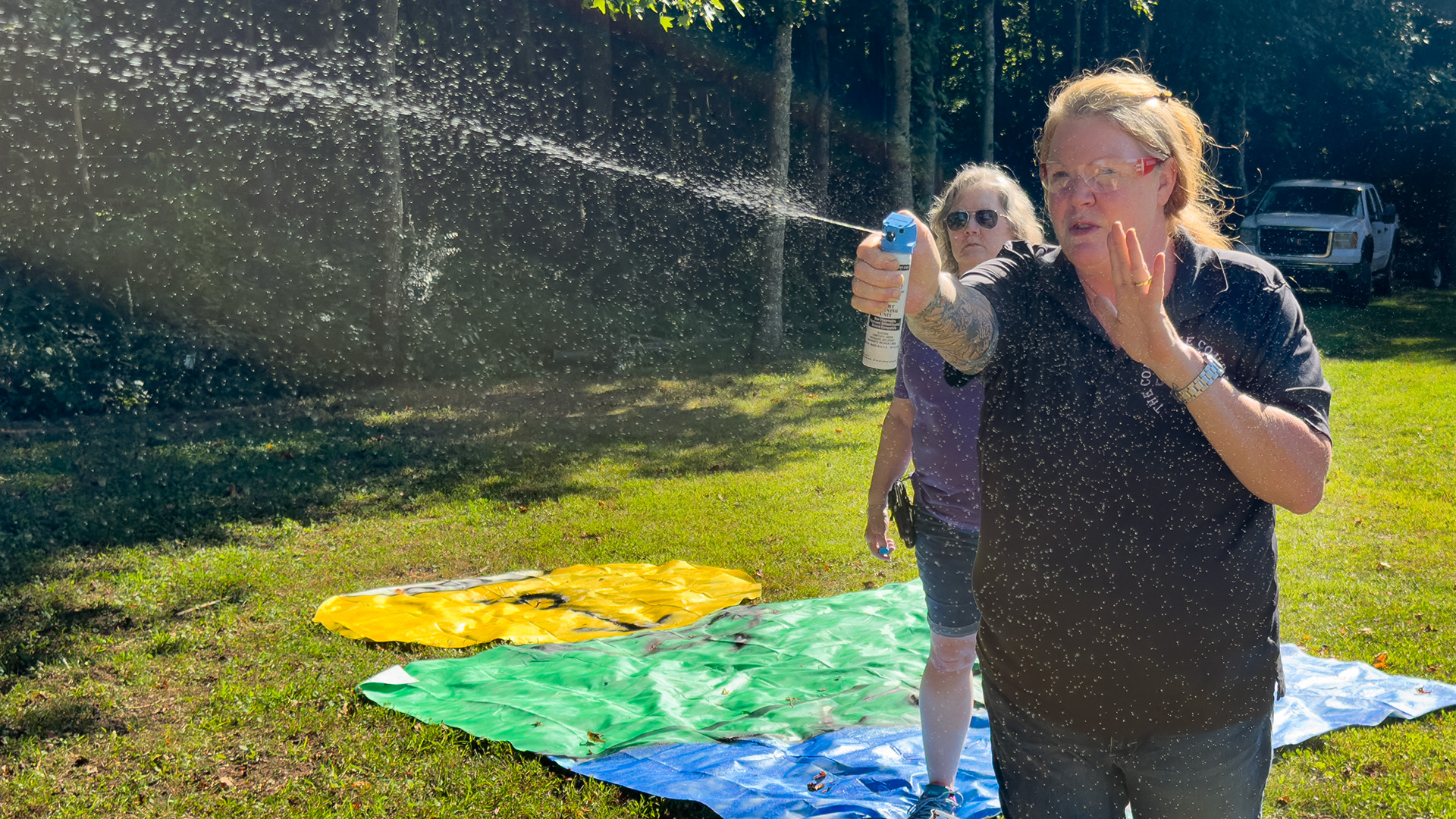
Using inert pepper spray is one of the reactions available an Image-Based Decision Drill class
The process of running an IBDD is deceptively easy: The instructor accompanies the student to a table where there is a stack of IBDD cards, along with the reaction options (flashlight, walk away card, etc). The student is shown a card and is given five or so seconds to look at the picture and then choose a response option. Ideally, the student should make the best possible decision as quickly as possible, based on what they saw on the card they were shown.
“My goal with Image-Based Decision Drills is to thaw the freeze response,” says Shelley Hill, “I want the student to have a plan in their head, ready to go, that is based on real-world conditions, not something that’s found only in a dojo or on a shooting range.”
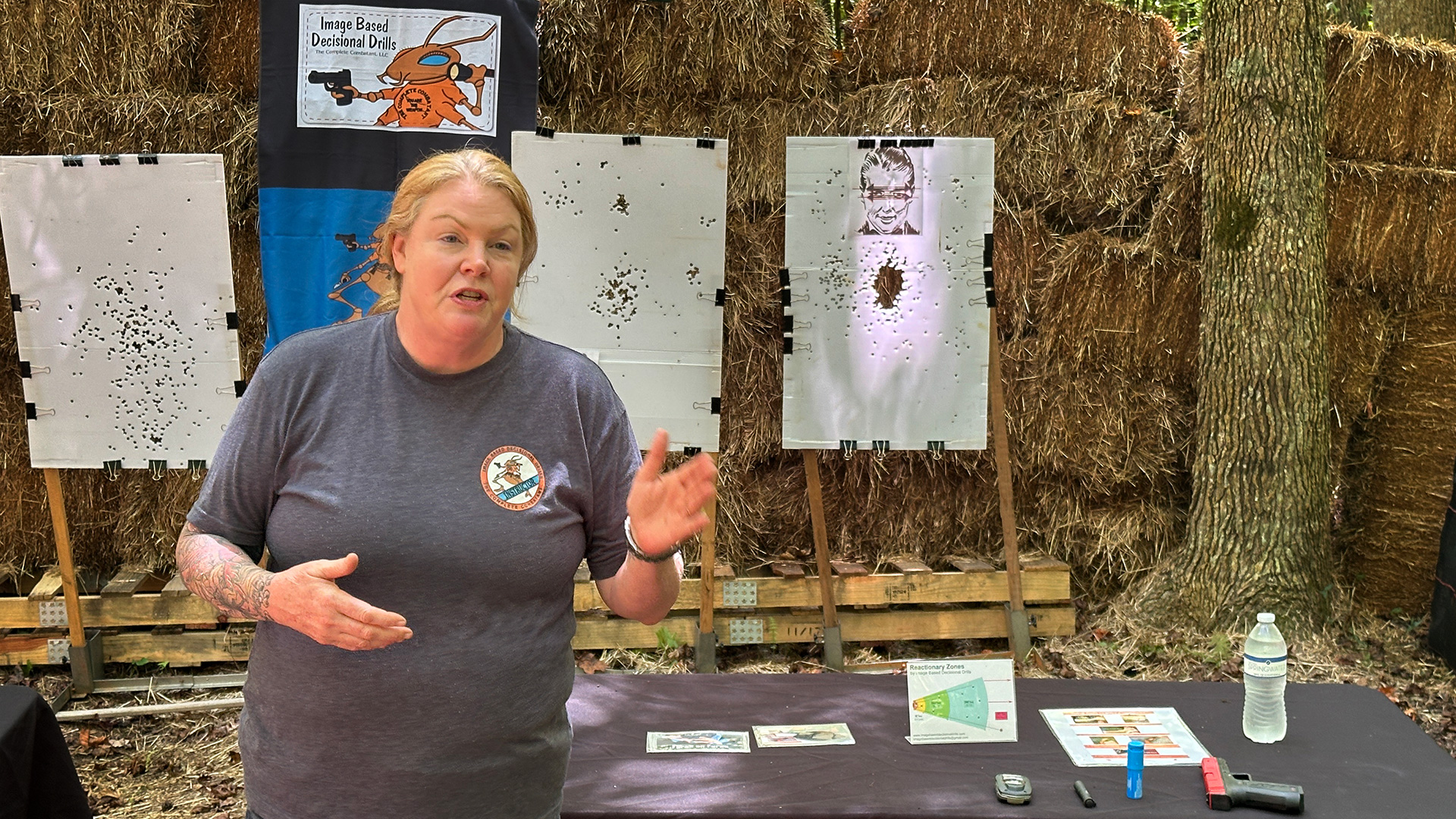
Teaching an IBDD class means using as many visual training aids as possible.
That’s the goal, but the implementation has seen a few bumps in the road. While anyone can buy the IBDD card set, using it properly takes from training, and that’s what the IBDD Instructor class is all about.
“What I found is that there are plenty of instructors using IBDD cards in their classes, but they are not taking distance management into consideration and they allow wrong answers because they have no idea what the right one is. For example, they show an image of an angry woman with nothing in her hands, moving towards you, and is now 6 feet from you. If the student’s answer is “I am going to shoot her because I feared for my life,” they accept that idea, no matter how bad it is. The correct answer is that the fight is on and is up close, and now you have to work backwards to earn the space to run away or use some other option,” says Hill.
Wanting to avoid these mistakes, I recently went through the IBDD Instructor class that is offered twice a year. In addition to learning how to properly use the IBDD cards in my own training classes, I came away from the instructor class with a profound understanding of how our minds react to stressful situations. I also gained a better idea of how a good plan, implemented with speed and decisiveness, is better than a great plan that takes ten seconds to implement.
IBBD cards go far beyond the shoot/no shoot scenarios found in a shoot house or at a practical pistol match. When used properly, Image-Based Decision Drills give the armed citizen a way to speed up their response to the entire spectrum of real-world dangerous situations. Adding a set to your training classes (and learning how to properly use them) opens up new training opportunities for you and your students.
Read the full article here


